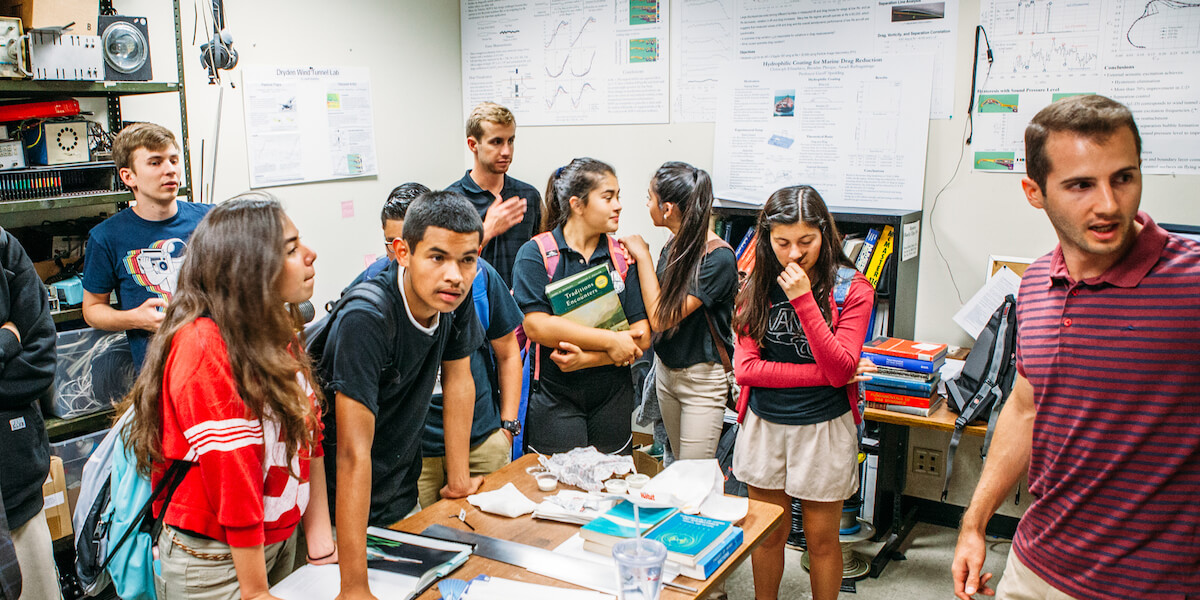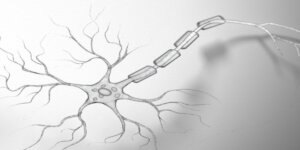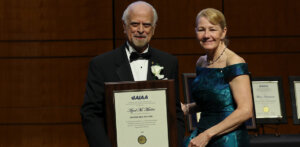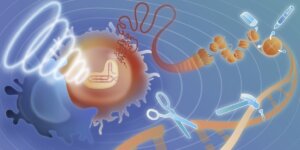
The new program aims to give middle and high school students a unique opportunity to learn about engineering in a classroom setting. (Photo Courtesy of USC Viterbi Flickr)
“Engineers are the hidden enablers of everything that we take for granted in modern life,” said Hayaatun Sillem, CEO of the UK’s Royal Academy of Engineering.
“From turning on the tap, to the smartphones that we check the moment we’ve woken up, to clean energy, to access to medicine, engineers literally design and deliver the physical and digital infrastructure, the services that we rely on every day—even if we are totally oblivious to it.”
In short, through technologies and innovation, engineers have shaped the world in which we live today, and they will continue to shape our future.
Why then, do so few K-12 schools incorporate engineering education into their curriculum? Why are K-12 science and math mostly taught in a disjointed fashion, without any understanding of how these topics tightly interconnect in real-world engineering? These questions drew the focus of Dr. Curtis Ling, co-founder and CTO of MaxLinear, a highly successful, semiconductor chip design company based in Carlsbad, California. Despite the crucial importance of engineering, most students graduate from high school without understanding how it binds their knowledge together into a powerful general problem-solving discipline.
The Engineers Foundation K-12 STEM Teaching program, launching this spring at the USC Viterbi School of Engineering, sets out to address this challenge.
The program, which is made possible thanks to a $500,000 gift from The Engineers Foundation (founded by Dr. Ling), will bring USC Viterbi undergraduate and master’s students into middle and high school classrooms, where they’ll work with local teachers to bring STEM subjects alive by applying them to solve real-world problems in engineering and computer science.
“The goal of this program is to bridge the gulf between K-12 and engineering taught at the university level, as well as to attract a wide array of talent and personalities into the fields of engineering,” Dr. Ling said. “I see this program as a laboratory for continuing to discover what is most effective for engaging students in engineering, early enough in their lives to make engineering a career option for them.”
The program is set to launch a pilot in late March, and to run for the next 4+ years. Over the course of the program, USC Viterbi students will spend about 10 hours each week in local classrooms: co-teaching lessons with teachers; leading hands-on activities, experiments, and projects; and serving as a resource and role model for younger students interested in engineering. According to the program’s director, Gisele Ragusa, a USC Viterbi professor of engineering education practice and the co-chair and director of USC’s STEM Education Consortium, the program aims to eventually give around 4,000 middle and high school students each year the opportunity to gain exposure to STEM content and to experience it in an innovative way.
The curriculum for the Engineers Foundation K-12 STEM Teaching Program will focus on exposing students to cutting-edge research in engineering, with lessons based on current research projects from USC Viterbi research laboratories. Lesson topics may include how artificial intelligence can be applied to the transportation industry, how materials science and chemical engineering are necessary in the development of effective safety and sanitation protocols against COVID-19, or how environmental engineering can be applied to the study of climate change, according to Ragusa.
As program director, Ragusa will work with fellow USC Viterbi faculty and students, as well as local K-12 teachers, to develop and implement the program’s lesson plans.
“Through this program, we really want to change middle and high school students’ perceived abstractions in engineering and demonstrate for students how relevant it is in their daily lives,” Ragusa said. “This is precisely what gets kids excited about learning.”
“We want to give students the opportunity to understand how engineering and computer science disciplines directly impact them, and inspire them about the role they can play in addressing real-world challenges that impact their lives and that impact society,” Ragusa added.
Published on February 11th, 2022
Last updated on February 19th, 2022












